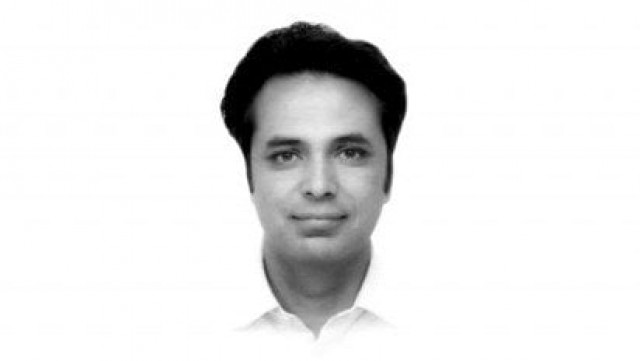McChrystalisation of national policy

It shows an unhealthy trend of weighing Pakistan’s strategic weight on the scales of personalities rather than pegging it on more durable factors. This process can be called the ‘McChrystalisation’ of national policy. That is not to say that General McChrystal gave dictation to Pakistan on what Islamabad’s behaviour ought to be. Nor does it mean that the military high command, led by General Ashfaq Parvez Kayani, mirrored US interests under the influence of General McChrystal. Yet the loudmouthed overconfident commander did have his lengthening shadow hover over much of the debate in Pakistan about how best to influence and shape a favourable outcome in an international war effort that had clearly developed signs of going badly wrong. General McChrystal was seen as an asset primarily because General Kayani had a good equation with him. They chatted more often than was reported in the media and shared much more than official documents would ever reveal to future historians. McChrystal had more trust in General Kayani than in most of his own colleagues, and this was used to get Pakistan’s point of view across in a complex environment where different interests competed with each other and where lobbies worked feverishly pushing Obama to take the war to Pakistan.
This was no small ingress into the US system, and given McChrystal’s penchant for getting his point of view accepted, it served Islamabad well to have someone like him on the right side. Imagine the reverse scenario, where the former general had designated Pakistan to be the real problem and the muscle-heads from his Team America — the inner coterie that ran his counter-terror campaign — used everything in their power to attack the Taliban inside Pakistan. That would have been a real nightmare scenario.
But then nothing comes for free in life. The ingress was mutual. In return for (supposedly) reflecting Pakistani concerns in Ops rooms he got an incredible room to manoeuvre in the Pakistani system. It is nice to believe that while we used him he did not use us, but that would be misleading. It is a fact that our outlook on Afghanistan did undergo a ‘McChrystalisation’, so to speak. From backing Hamid Karzai, the lone voice in support of McChrystal in his last hours, to happily chugging along the idea of a troops surge in Afghanistan, the Pakistani military establishment did second almost every move the controversial general made in his attempt to create a semblance of success in an unwinnable war.
When Obama was reviewing his Afghanistan policy, there was not much debate here in Pakistan about the downside of the troops surge as proposed by General McChrystal and if there were objections that were raised they were in private and did not have much of an impact on the final choice the US president made. In other words we endorsed General McChrystal and in the process endorsed his war strategy which had huge flaws in it. Pakistan also suffered during this time, anyway. The last two years have been the worst Pakistan has faced in terms of cross-border terrorism from Afghanistan. India’s role has expanded in our neighbourhood and splittist forces have gained a happy refuge there.
Drone attacks have risen sharply while the goodies train from Washington to Islamabad has been moving forever haltingly. And now the general around whom we had ‘McChrystalised’ policy is also gone, leaving parts of our long-term planning hanging in the air. One does hope that now all those powerful lobbies in the US that General McChrystal so decisively rubbished, and which in the end got even with him, do not turn their wrath onto Pakistan for backing him.
Published in The Express Tribune, June 28th, 2010.














COMMENTS
Comments are moderated and generally will be posted if they are on-topic and not abusive.
For more information, please see our Comments FAQ